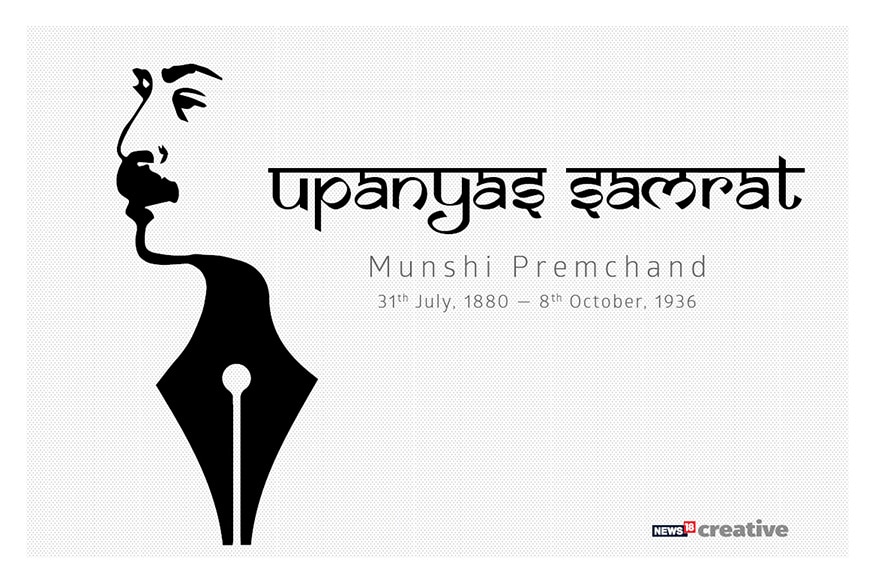

In his last days, he focused on the portrayal of village life as in his outstanding work Godan ( The gift of a cow in 1936) and the short story collection Kafan ( Shroud in 1936). During the 1920s, inspired by the Gandhi s Non Co-operation Movement and the struggle for social reform, he wrote extensively on social issues such as poverty, the zamindari system and its exploitation (Premashram, 1922), dowry system (Nirmala, 1925) educational reform and political oppression (Karmabhumi, 1931)

His early works, A Little Trick and A Moral Victory were a satire on Indians who co-operated with the British Government. His collected stories have been published under the names of Prem Pachisi, Prem Battisi, Wardaat and Zaad-e-Raah. His famous Afsanas include Qaatil Ki Maan, Zewar Ka Dibba, Gilli Danda, Eidgaah, Namak Ka Daroga and Kafan. Just like his novels, his Afsanas also mirror the society he lived in with the perfect blend of satire and humor. Short stories or Afsanas were first started by Premchand in Urdu. It would not be wrong to say that Premchand was really the Father of Urdu short- stories. Writing in both Hindi and Urdu gave him access to both the Hindu and the Muslim population of India. He used the pen and the paper as a medium to arouse social, political and national consciousness among the people of India. With a strong rationalistic outlook, his works view religious values as a weapon used by the powerful hypocrites to subjugate the weak. His stories and novels focus on the sorry plight of the urban middle class and the poor. Premchand is regarded as one of the important Hindu authors whose writings prominently featured realism. Major Works and Achievements of Premchand He wrote for the film Mazdoor and did many other translations and novels. His last two ventures left him in debt which made him take up a job as a script writer for Ajanta Cinetone in Mumbai. In his ambitious career, he tried running a printing press, he became editor of the journal Madhuri, started a weekly called Hans, then another weekly called Jagran. It was only in 1914, that he started writing in Hindi. In 1907, after the publishing of his controversial Soz a watan – a short story collection which contained four stories that inspired the Indians to strive for the freedom of the country - was banned, his house in Hamirpur was raided and five hundred copies of his book were burnt, he secretly changed his pseudonym from Nawab Rai to Premchand. Later he became a principal at a school in Varanasi.ĭhanpat Rai first wrote under the pseudonym "Nawab Rai." Nawad (Prince) was a name given to him by his uncle. He then returned to work as a teacher for Marwari Vidyalaya but again left it to take the responsibility of editing the magazine Maryada. Thereafter, to serve the cause of Independence, he tried writing for columns of Urdu dailies of Gorakhpur Tehkik and Swadesh but could not keep up the job.

When Mahatma Gandhi asked people to resign from government jobs in a seminar held in Gorakhpur, Premchand took his advice and quit his job as a school teacher. In 1909, he remarried a widow Shivarani Devi in spite of the opposition faced by the society for this revolutionary step. He was married once at the age of 14 to a girl from a neighboring village but she soon returned back to her village when he left in 1889. He completed his Bachelor s of Arts while being employed as a teacher and resigned from his services in 1921 on call of Mahatma Gandhi. With no means to support himself, he intermittently abandoned his studies and took up a job as a teacher in Chunar, near Varanasi. After his parents’ death he was responsible for his step mother and his step-siblings. His early education was at a local madrasa under a maulvi, where he studied Urdu. He is also famously known as the Upanyas Samrat which means a great emperor among novel writers.Įarly Life of Premchand Munshi Prem Chand was born as Dhanpat Rai on Jin a village called Lamhi in Varanasi. He is a novel writer, a story writer and a dramatist. In the memory of this prolific writer, many literary societies and associations will celebrate the 84 death anniversary of the literary master on October 8, 2021.Ī literary giant of the Hindi-Urdu literature, he is recognized in India as the fore-most Hindi-Urdu writer of the early 20th century. Munshi Prem Chand, the author of the famous books Godan and Kafan passed away on October 8, 1936.


 0 kommentar(er)
0 kommentar(er)
